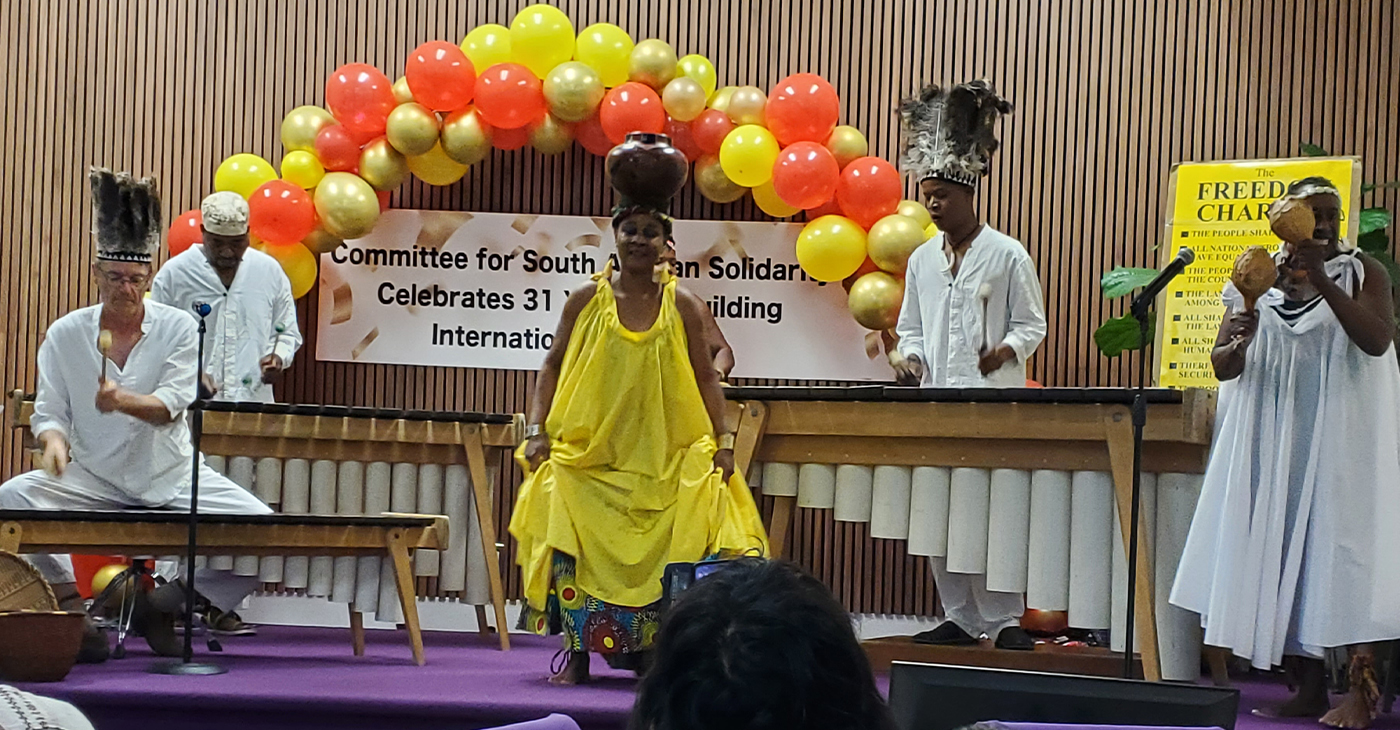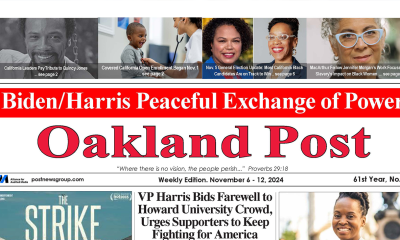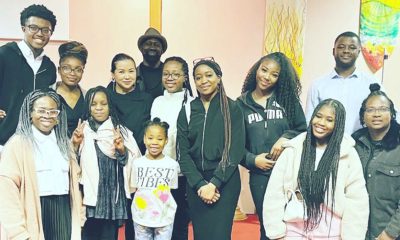World
Jamaica Passes Act Decriminalizing Small Amounts of Pot

In this Aug. 28, 2014 file photo, legalization advocate and reggae legend Bunny Wailer smokes a pipe stuffed with marijuana during a reasoning session in a yard in Kingston, Jamaica. Jamaica lawmakers on Tuesday, Feb. 24, 2015, passed an act to decriminalize small amounts of pot and establish a licensing agency to regulate a lawful medical marijuana industry on the island. (AP Photo/David McFadden, File)
DAVID McFADDEN, Associated Press
KINGSTON, Jamaica (AP) — Jamaican lawmakers on Tuesday night passed an act to decriminalize small amounts of pot and establish a licensing agency to regulate a lawful medical marijuana industry on the Caribbean island.
After several hours of debate, legislators in the lower House on Tuesday gave final passage to drug law amendments that make possession of up to 2 ounces of marijuana a petty offense that would not result in a criminal record. Cultivation of five or fewer plants on any premises would be permitted in Jamaica, where the drug has long been culturally entrenched but illegal.
The law paves the way for a “cannabis licensing authority” to be set up to deal with regulations on cultivation and distribution of marijuana for medical, scientific and therapeutic purposes.
Rastafarians can also legally use marijuana now for religious purposes for the first time on the tropical island, where the spiritual movement was founded in the 1930s. And tourists who are prescribed medical marijuana abroad will soon be able to apply for permits at a cost authorizing them to legally buy small amounts of Jamaican weed, or “ganja” as it is known locally.
Peter Bunting, the island’s national security minister, said authorization of the law does not mean that Jamaican government plans to soften its stance on transnational drug trafficking or cultivation of illegal plots.
“The passage of this legislation does not create a free-for-all in the growing, transporting, dealing or exporting of ganja. The security forces will continue to rigorously enforce Jamaican law consistent with our international treaty obligations,” Bunting said in Parliament.
William Brownfield, the U.S. assistant secretary for counter-narcotics affairs, told The Associated Press days before the Tuesday vote that “Jamaican law is of course Jamaica’s own business, and Jamaica’s sovereign decision.” But he noted that the trafficking of marijuana into the U.S. remains against the law.
“We expect that Jamaica and all states party to the U.N. Drug Conventions will uphold their obligations, including a firm commitment to combating and dismantling criminal organizations involved in drug trafficking,” he told AP.
For decades, debate has raged in Jamaica over relaxing laws prohibiting ganja. Previous efforts to decriminalize small amounts of marijuana have been scuttled because officials feared they would violate international treaties and bring sanctions from Washington.
But emboldened by changes to drug laws in other countries, Jamaican officials now have high hopes that the island could become a player in the nascent medical marijuana industry, health tourism and the development of innovative pot-derived items. Local scientists already have a history of creating marijuana-derived products, such as “Canasol,” which helps relieve pressure in the eyes of glaucoma patients.
On Tuesday, Commerce Minister Anthony Hylton said the industry holds “great potential” for Jamaica, which is laboring under its latest loan program with the International Monetary Fund.
The Tuesday move by Jamaican lawmakers adds to an international trend of easing restrictions on marijuana for medical or personal use. More than 20 U.S. states allow some form of medical marijuana and last year Colorado and Washington legalized personal use. On Tuesday, Alaska became the third U.S. state to legalize the recreational use of marijuana for adults.
In the Americas, Uruguay last year became the first nation to create a legal marijuana market. Other countries in the region have made similar moves to Jamaica. In Argentina, personal possession of marijuana was decriminalized under a 2009 Supreme Court ruling that jail time for small amounts of drugs violates the country’s constitution.
___
David McFadden on Twitter: : http://twitter.com/dmcfadd
Copyright 2015 The Associated Press. All rights reserved. This material may not be published, broadcast, rewritten or redistributed.
Activism
South African Solidarity Committee Hosts 31st Annual Celebration
“We’re all together for each other celebrating 31 years of building international solidarity between the people of the United States and South Africa toward the implementation of the 1955 Freedom Charter and 2030 Sustainable Development Goals,” said COSAS Operations Manager Nicole Richards.Located in Berkeley, COSAS is dedicated to the continuing struggle by the people of South Africa’s need for independence.

By Carla Thomas
The Committee of South African Solidarity (COSAS) celebrated its 31st anniversary on Saturday, Oct. 26 at the East Bay Church of Religious Science in Oakland.
Themed “Ubuntu,” a word in Zulu and Xhosa, which means “I am because we are,” the event brought together supporters and community members.
“We’re all together for each other celebrating 31 years of building international solidarity between the people of the United States and South Africa toward the implementation of the 1955 Freedom Charter and 2030 Sustainable Development Goals,” said COSAS Operations Manager Nicole Richards.
Located in Berkeley, COSAS is dedicated to the continuing struggle by the people of South Africa’s need for independence.
A soulful meal was prepared by Chef Rene Johnson and Blackberry Soul Catering along with live entertainment and speakers.
COSAS is an all-volunteer, private membership organization, made up of South Africans, Africans, students, professionals, clergy and others committed to building solidarity between the working people of the U.S. and the South African people still struggling for economic and political freedom.
Formed in 1993, the organization promotes the “real nature” of the changes and struggles taking place in South Africa and the African continent, according to Richards.
“COSAS counters ‘disinformation’ and ‘misinformation’ in the U.S. and Western mainstream media that creates division and distrust,” Richards said. “We produce the South African Beacon and organize and transport solidarity shipments of school supplies to South African grade schools requesting assistance,” Richards said.
According to organizers, COSAS is completely run by volunteers, free from the corporate and government agendas that continue to keep South Africa dependent on the West.
“We rely on the support of concerned individuals. Call us today about how you can get involved by sorting and packing supplies, donating office equipment, and supporting special events,” said Richards.
Earlier in the year, COSAS hosted its World Affairs film showing at Downs Memorial United Methodist Church. The screening featured a short film, “Feeding a Crisis: Africa’s Manufactured Hunger Pandemic,” exploring the hunger challenges African countries face and approaches to resolving the issues.
Contact the Committee for South African Solidarity, 1837 Alcatraz Ave., Berkeley, CA, 510-251-0998 for volunteer opportunities and event information.
Community
How Mobihealth Drives a Telemedicine Revolution in Africa
As a child growing up in northern Nigeria, Dr. Funmi Adewara experienced a severe hand injury that required multiple surgeries and frequent hospital visits. These visits exposed her to the harsh realities of the country’s healthcare system. “I remember sitting in overcrowded waiting rooms, watching doctors stretched thin, unable to meet the needs of so many patients,” Adewara recalls. This formative experience ignited her passion for transforming healthcare in Africa.

By Ifeanyi Abraham
CNN
As a child growing up in northern Nigeria, Dr. Funmi Adewara experienced a severe hand injury that required multiple surgeries and frequent hospital visits.
These visits exposed her to the harsh realities of the country’s healthcare system. “I remember sitting in overcrowded waiting rooms, watching doctors stretched thin, unable to meet the needs of so many patients,” Adewara recalls.
This formative experience ignited her passion for transforming healthcare in Africa.
Growing up with a mother who worked as a nurse, Adewara’s understanding of healthcare challenges deepened through her mother’s stories.
“I knew early on that healthcare wasn’t a privilege — it was a necessity, and I wanted to be part of changing the system,” she explains.
After training as a physician, Adewara worked for 15 years in the United Kingdom’s National Health Service before founding the telemedicine platform Mobihealth in 2017.
Since its launch, Mobihealth has impacted thousands of lives, connecting patients with doctors and healthcare professionals across Nigeria and beyond.
The platform has 20 integrated telehealth clinics that offer remote consultations, diagnostics, and access to specialist care via digital health tools. Located primarily in Nigeria, these clinics are accessible to patients through various subscription plans and are often financed through partnerships with global donor organizations and private donors.
In addition to the clinics, Mobihealth has partnerships with over 200 hospitals, labs, and pharmacies, Adewara says.
The company has earned global recognition, including a $1 million grant from the U.S. Trade and Development Agency in 2022. Adewara was also one of the World Bank’s seven 2020 Sustainable Development Goals & Her award winners, selected from over 2,400 entries worldwide.
Connecting Rural Patients
Across sub-Saharan Africa, millions struggle to access basic healthcare. According to the World Health Organization, the region bears 25% of the global disease burden but has only 3% of the world’s healthcare workers.
“In rural Africa, a trip to the nearest hospital can mean the difference between life and death,” says Adewara.
Mobihealth’s latest initiative offers healthcare for $1 a month for rural and underserved populations. It allows Africans in the diaspora — and global supporters — to sponsor essential services like doctor consultations, diagnostic tests, and access to telemedicine clinics.
The scheme is not solely based on donations; individuals can also subscribe to the service for themselves.
“Healthcare systems across Africa are under immense pressure,” Adewara explains. “Our initiative is a direct response, using technology to connect rural patients with doctors thousands of miles away.”
For Adewara, Mobihealth’s telemedicine platform is not a temporary fix; it represents the future of healthcare in Africa.
“This is about creating a resilient, sustainable and inclusive system, where people, no matter where they are, can access the care they need,” she says.
“Telemedicine brings doctors to people, wherever they may be. By integrating AI and remote monitoring, we are improving the speed and accuracy of care, saving lives in the process,” she adds.
A number of African companies provide telemedicine services, but researchers have pointed out that there are obstacles that could hinder the growth of telemedicine in the continent.
Rural areas can have an unreliable electricity supply and poor internet connectivity, and there is often a lack of government policies and funding around virtual healthcare.
“A Healthcare System for the Future”
Adewara envisions scaling her company’s model to reach millions more across Africa, particularly in countries like Ghana, Kenya, and Ivory Coast.
“Our work is just beginning,” she says. “We are building a healthcare system for the future — one that is resilient, inclusive and capable of meeting Africa’s growing population’s needs.”
However, partnerships are crucial to achieving this vision. “We can’t do this alone. Our collaborations with the African diaspora, hospitals, governments, and international organizations allow us to reach more people and ensure that healthcare is affordable, efficient and accessible,” Adewara adds.
Activism
Atty General Rob Bonta Joins Coalition Backing Pres. Biden’s Migrant Parole Program
“The Biden Administration’s CHNV Parole Program provides a safe pathway to apply for protection for Cuban, Haitian, Nicaraguan, or Venezuelan migrants fleeing violence and upheaval. We urge the court to uphold this program that creates orderly processes for people fleeing humanitarian crises to lawfully reach the United States,” said California Attorney General Rob Bonta. The federal government has exercised its authority under the Immigration and Nationality Act to parole migrants into the country for humanitarian purposes since the Eisenhower Administration.

By Bo Tefu, California Black Media
Attorney General Rob Bonta joined a multistate coalition of 18 attorneys general to write an amicus brief supporting President Joe Bidens’s Parole Program for migrants fleeing violence.
The multistate coalition will submit the brief to the Fifth Circuit Court of Appeals regarding the case Texas v. U.S. Department of Homeland Security. The brief endorses Biden’s Parole Program for Cubans, Haitians, Nicaraguans, and Venezuelans (CHNV Parole Program). The migrant parole program allows individuals from the four countries to apply for advance travel authorization. Migrants can be considered for temporary humanitarian parole of up to two years including employment authorization.
The coalition highlighted California’s interest in maintaining the federal government’s discretionary power granting migrants entry or allowing immigrants to stay on humanitarian grounds.
“In California, we believe that migrants escaping violence should be treated with compassion and dignity, and immigration parole programs are a crucial part of a just and secure immigration system,” said Bonta.
“The Biden Administration’s CHNV Parole Program provides a safe pathway to apply for protection for Cuban, Haitian, Nicaraguan, or Venezuelan migrants fleeing violence and upheaval. We urge the court to uphold this program that creates orderly processes for people fleeing humanitarian crises to lawfully reach the United States,” he said.
The federal government has exercised its authority under the Immigration and Nationality Act to parole migrants into the country for humanitarian purposes since the Eisenhower Administration.
The coalition argued that the lawsuit in Texas threatened to undermine the federal government’s authority to establish crucial programs that help migrants escape unstable circumstances in their home countries.
The coalition stated that parole provides safe, legal, and orderly pathways for people to seek protection in the United States.
However, opponents claim that parole pathways help increase crime and impose costs on states.
-

 Activism3 weeks ago
Activism3 weeks agoLIVE! — TOWN HALL ON RACISM AND ITS IMPACT — THURS. 11.14.24 5PM PST
-

 Activism4 weeks ago
Activism4 weeks agoOakland Post: Week of November 6 – 12, 2024
-

 #NNPA BlackPress4 weeks ago
#NNPA BlackPress4 weeks agoOP-ED: The Illusion of Allyship. White Women, Your Yard Signs Mean Nothing to Me
-

 Activism2 weeks ago
Activism2 weeks agoAn Inside Look into How San Francisco Analyzes Homeless Encampments
-

 #NNPA BlackPress2 weeks ago
#NNPA BlackPress2 weeks agoPRESS ROOM: Clyburn, Pressley, Scanlon, Colleagues Urge Biden to Use Clemency Power to Address Mass Incarceration Before Leaving Office
-

 #NNPA BlackPress2 weeks ago
#NNPA BlackPress2 weeks agoFive HBCUs Leading the Charge in Creating Black Excellence
-

 Activism3 weeks ago
Activism3 weeks agoOakland Post: Week of November 13 – 19, 2024
-

 Activism2 weeks ago
Activism2 weeks agoOakland Post: Week of November 20 – 26, 2024































































